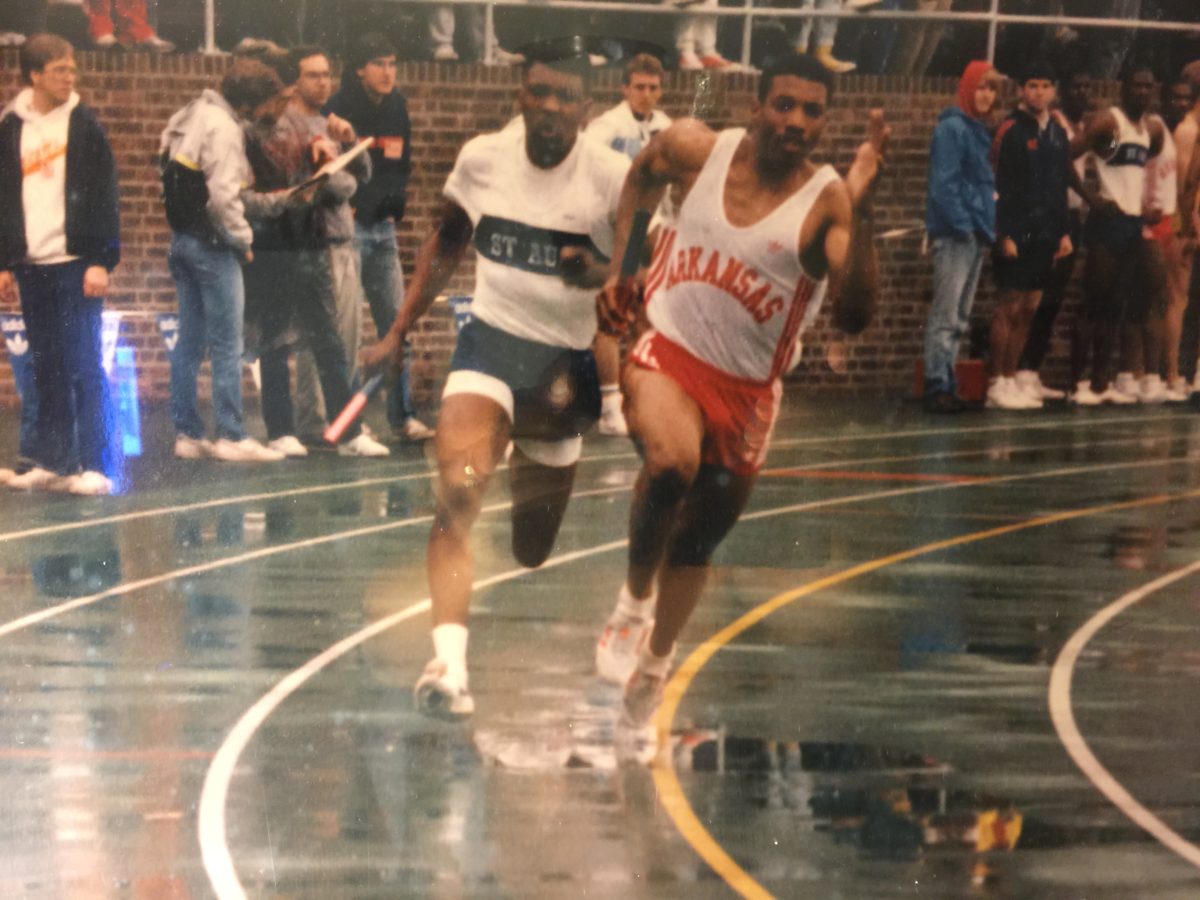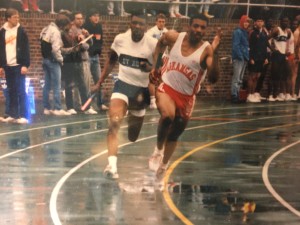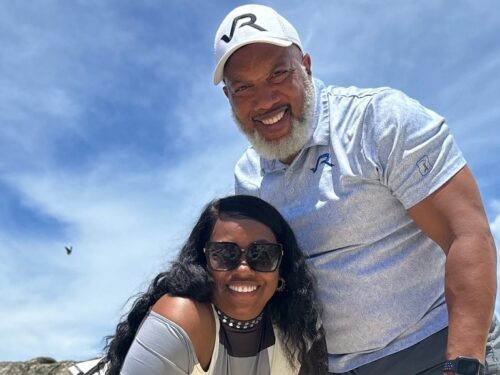
I ran the lead off leg for the Arkansas Razorbacks 4x400m relay. I can say from experience that the race is one of the most grueling in track and field. The last 100m is the most painful of the race no matter what shape an athlete is in. Because I knew the pain was coming I used to literally cry before starting for the Hogs!
For those who don’t know how painful this race can be, I suggest going to your local track and, after a proper warm-up, attempting to run one lap, without stopping, at a full sprint. You may want to get a doctor’s note if you’re a
ctually considering sprinting the race — especially if you are out of shape. Believe me, you will cry too! But, please try not to pass out on me — I need you to read my next blog.
The best runners in the 400m dedicate themselves to a rigorous training regime so they are able to run several rounds of races before the finals in large competitions and one of the most crucial points of the race is the start. In general terms the shorter the distance the more important the start becomes. It is critical for the athlete to have the best start possible in order to be competitive. The longer the race the start is not as crucial because the runner can make up more time during the race.
In the 400m, the start is a critical part of the race, although it is less important than in the 100m because it is a longer race and the athlete can make up more time during the race due to the greater distance.
Now on to my story. Christine Ohuruogu, a 400m sprinter from Great Britain, false started in the 400m. This is almost never heard of. She instantly was removed from her lane as per the rules and was unable to contest for the medal in the 400m dash at the world championship race in 2011.
American 1-lap Queen Sanya Richards-Ross stated, “It’s so rare that you hear the second gun in the 400m – I thought it was a malfunction,” she told the BBC. “In the call room we were like, aw man. I’m disappointed for her.”
Consider that Ohuruogu had worked all year to get into form and into the world championships. All of the grueling workouts, all of the months of training, all of the injuries overcome, that led up to this one race were rendered useless because of one false start, in one race.
- She was devastated.
- Her teammates were devastated.
- Her coaches were devastated.
- Her competitors were even sympathetic to her plight, and became more aware of the consequences of a false start.
- The media – “cheeky”
It is so easy to be critical and put ourselves in the shoes of others and say “I would never do that.” But really, how many of us have made a mistake, a straight up boneheaded mistake in life? I know I have. The difference is our mistakes aren’t broadcast to the world for others to judge, as Christine Ohuruogu’s was.
Wouldn’t it be great if we all took the mindset to pick people up when they make mistakes? Recognize the error – yes, but don’t let someone live in that one mistake, forever. Think about it?
- How many of these moments can you change in a day?
- How many people can you help back up?
- What would you do seeing someone at a low point? Would you help them up, like Christine’s coaches and teammates, or would you kick them while they are down like the media at the 2011 Track and Field World Championship?
We all know when we have made a mistake and people aren’t telling us anything new when they talk about our mistakes. They are only restating the obvious without offering any constructive advice. I think a lesson on how to deal with a negative situation and turn it in to a positive is in order.
In his book, One Minute Manager, Ken Blanchard has a section entitled “The One Minute Reprimand.” The reprimand begins with something good the employee, or in this case the athlete has done, before allowing the employee or athlete to articulate their feelings about what went wrong. It is then followed by several things a person can do to correct their mistake and a statement about how they are valued as person despite their mistake. This method of mistake correction is a great tool to have in your arsenal and will help the person reprimanded perform better in the future.
So, back to Ms. Ohuruogu. Even though she was disqualified from the open 400, 1 year later she learned from the error (maybe used it as inspiration) and blasted to a silver medal in the London Olympic Games!
The London papers were ecstatic, less cheeky, Ms. Ohuruogu performed brilliantly through the rounds and then won the silver medal! Despite the 2011 setback she hurdled her adversity and demonstrated the true spirit of an adversity overcomer.
When faced with adversity, you can decide whether to settle into your setbacks, or to roar forward and make the best of bad situation.
I believe low points in life allow for the highest potential and from mistakes we can surge back to triumph over adversity and then we can share our lessons with others to inspire them to greatness!
Go forth and inspire your world!
John




